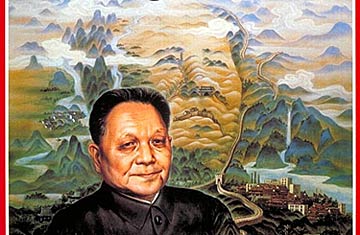
(15 of 20)
Follows next the threat that the Chinese say "comes from the right." This is serious because it rises not from nostalgia but from simple human envy. I find myself at a livestock fair — goats, mules, cows, horses, sheep and lambs, pigs and piglets. An old peasant has brought his sow, suckling 13 piglets. He is offering them at 18 yuan ($9) each, more than 200 yuan. And the sow farrows twice a year. The diplomat accompanying me purses his lips. His monthly salary is only 200 yuan; this peasant lives better than he. The diplomat's devotion to his government is total, but how long can such devotion last?
I have to extrapolate the "rightist" threat to the regime from what can only be called the everlasting human residue. That residue of appetite shows in the cities, from Canton to Shanghai to Peking. It is a subtle, subversive threat. The puritan China of Mao frowned on sex. But Mao would erupt from his mausoleum if he could see what Peking now offers (and even more vividly, Shanghai and Canton). I went to see the top-billed vaudeville troupe of China, visiting from Shanghai. Except for concubines, women in China once showed their thighs only to their husbands. Now here were twirlers, dancers, women in tutus, their skirts cut only a few inches below the crotch. Jiang Qing would have condemned them all to stoop labor.
The drive shaft of the rightist threat, however, is not sex but greed. A few Chinese are getting rich. Capitalism has been permitted tiny openings to start up enterprises, so some will grow richer. Yet the main frame of government remains the dedication of civil servants who must work for almost nothing. And even the most dedicated can be lured from devotion by creature comforts. So one hears of corruption now surfacing in the party, street crime growing in the cities, a silent threat to the regime.
THE GREATEST PROBLEM
Of all the threats, however — the corrosion of money and prosperity, the corrosion of manners invited by the spectacle of bare thighs and soap opera on television — none is more explosive than the unshaped discontent that pulses from human nature itself. That threat rises from what is China's overwhelming, perhaps insoluble, problem, which is simply: What do you do when you have too many people?
China has more than doubled its population in 36 years, from 455 million people to more than 1 billion. The crunch of people crushes city and country alike. In the cities, housing obsesses talk. Since there is no private housing, no rental housing, the party unit decides, according to rank, pull and number of people in the family, who gets how many feet of living space. Peking offers most — an average 45 sq. ft. per individual. Wuhan averages 40, Shanghai less, an incredibly tiny 30 sq. ft. per person (apart from kitchen and community toilet). But high officials are rewarded with hundreds of square feet, as are favored foreigners.
The government recognizes, as does the party, that China holds too many people; the figures are grim, inexorable, inescapable. No one knows what can be done about it. Is it too late?
The party and government have a policy: to each family one baby, no more. In the large cities, this is barely enforceable. If a
